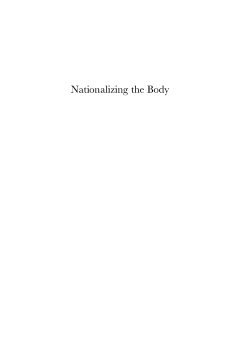
Additional Information
Book Details
Abstract
This book seeks to move emphasis away from the over-riding importance given to the state in existing studies of ‘western’ medicine in India, and locates medical practice within its cultural, social and professional milieus. Based on Bengali doctors writings this book examines how various medical problems, challenges and debates were understood and interpreted within overlapping contexts of social identities and politics on the one hand, and their function within a largely unregulated medical market on the other.
‘Projit Mukharji presents a meticulously researched construction of the identity of “Daktari” physicians, or Indian practitioners of Western medicine, through the late nineteenth and early twentieth century in British Colonial Bengal. […] A significant and definitive contribution to this field.' —Kavita Sivaramakrishnan, Harvard University, in ‘Social History of Medicine’
Projit Bihari Mukharji is a Wellcome Fellow at Oxford Brookes University.
‘This book performs the ambitious and much required task of tracing the distinct vernacular career of imperial medicine in Bengal. […] Mukharji delves into an enviably exhaustive range of sources. The deeply layered Bengali medical archive has been explored here in unprecedented detail. […] One can be certain that “Nationalizing the Body” will remain a crucial reference point not just for the histories of medicine in South Asia but colonial medicine more generally.’ —Rohan Deb Roy University of Cambridge, ‘Canadian Bulletin of Medical History’
‘Nationalizing the Body’ revisits the history of ‘western’ medicine in colonial South Asia through the lives, writings and practice of the numerous Bengali ‘daktars’ who adopted and practised it. Refusing to see ‘western’ medicine as an alienated appendage of the colonial state, this book explores how ‘western’ medicine was vernacularised. It argues that a burgeoning medical market and a medical publishing industry together gave ‘daktari’ medicine a social identity which did not solely derive from its association with the state. Accessing many of the best-known ideas and episodes of colonial South Asian medical history, it seeks to understand how ‘daktari’ medicine re-positioned the colonized bodies as nationalized bodies.
